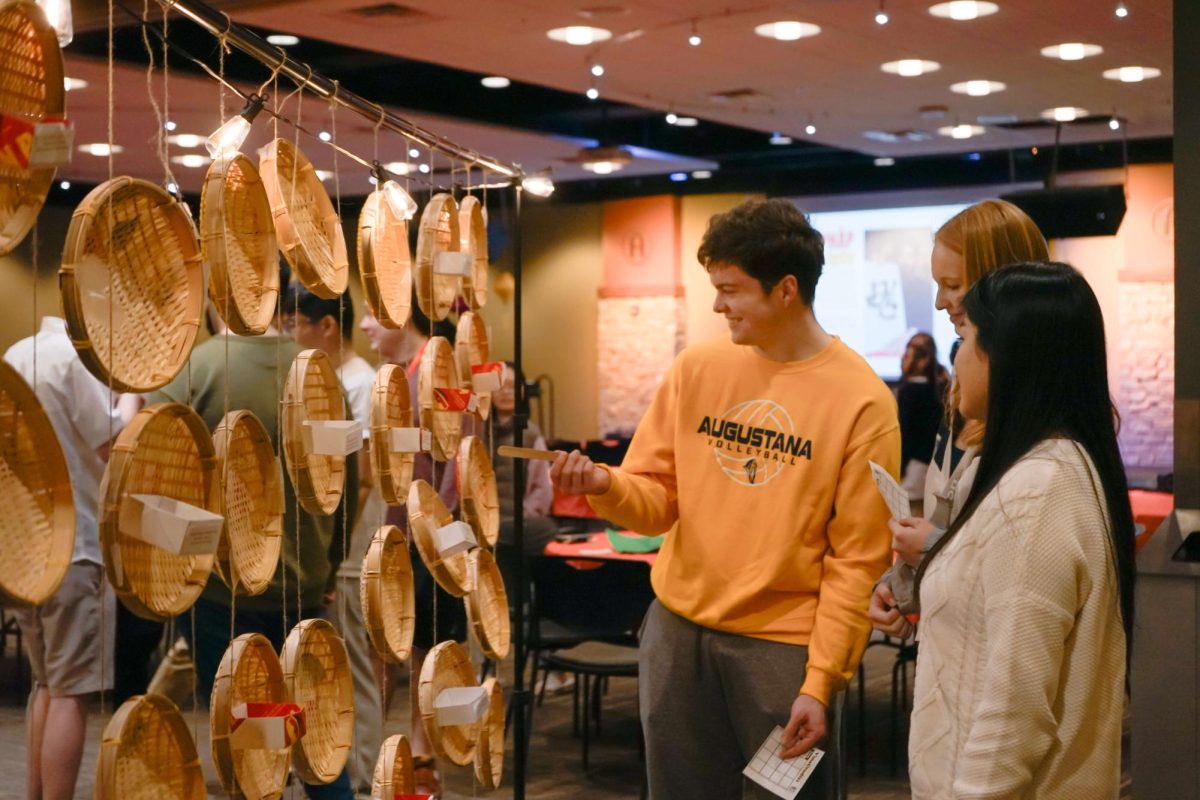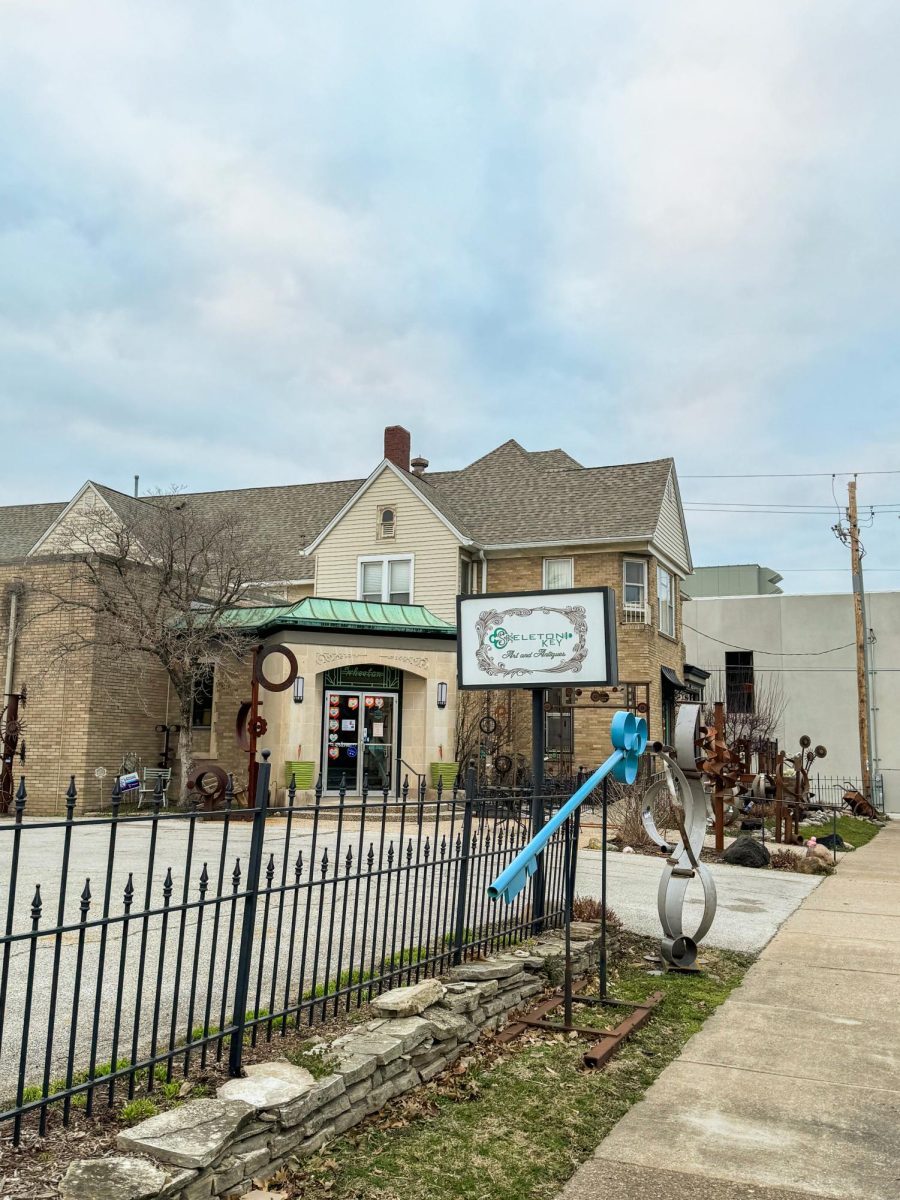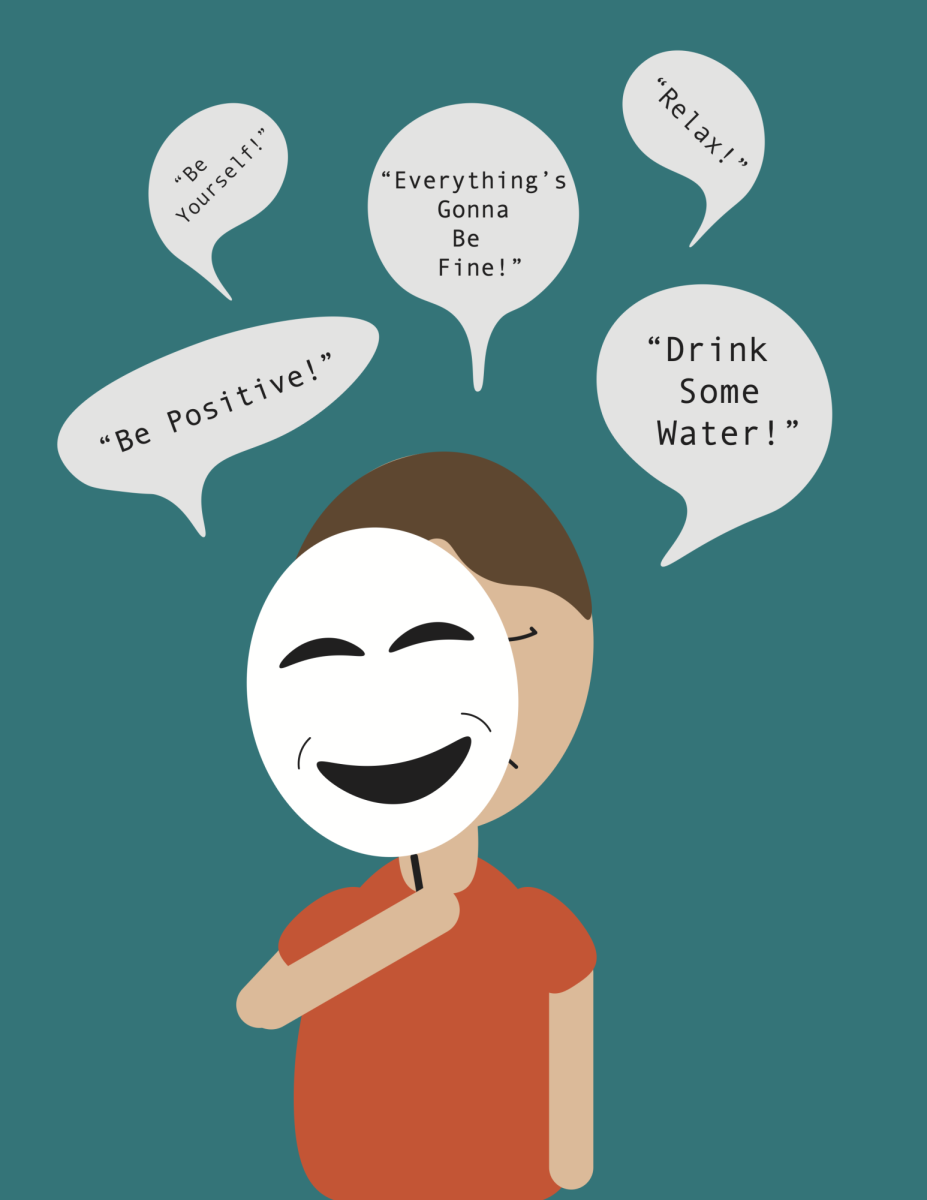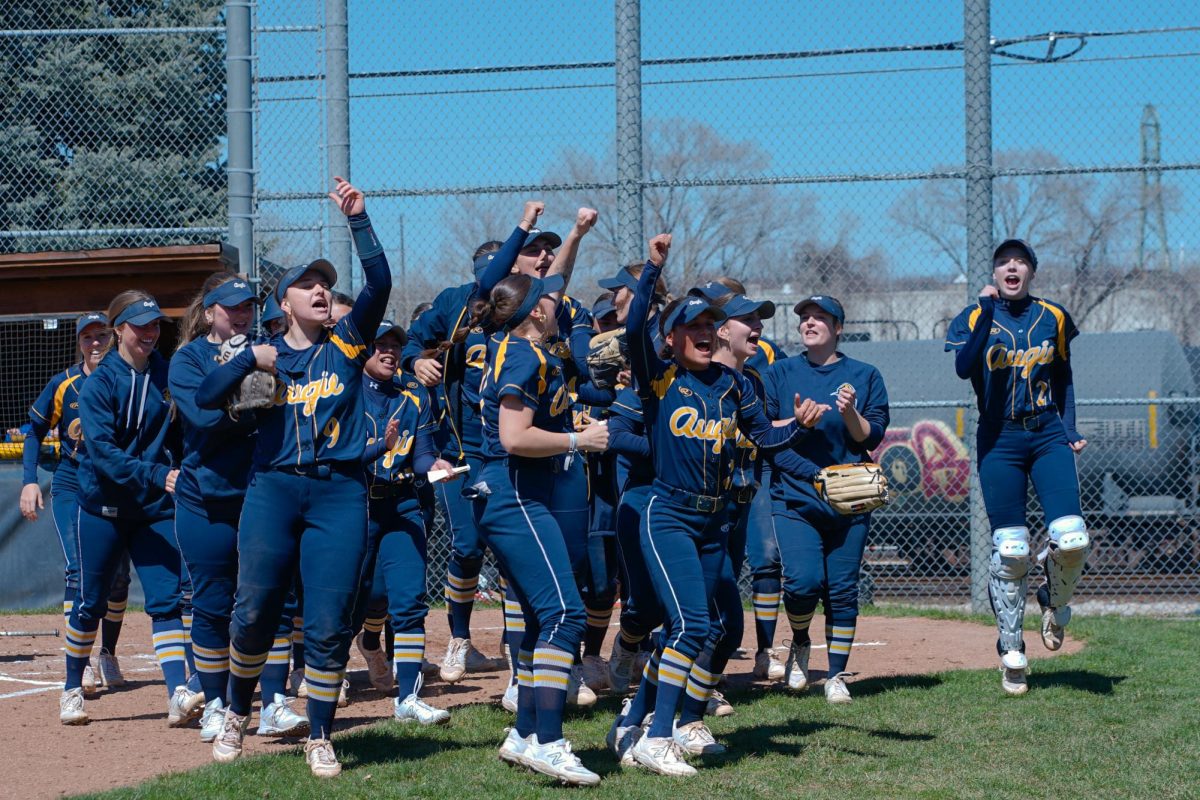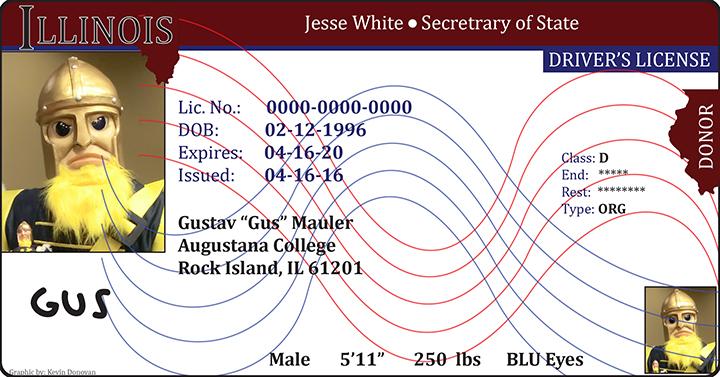Flirting with a felony: fake IDs increase in underage population
December 14, 2017
It’s 11:30 p.m. and still early in the evening for the MetroLINK Late Night 53 Bus. The floor and walls are a clean grey, thin blue seats stained brown from use but cleaned in preparation of the Thursday route. A bus ad displays “Metro Manners,” aimed to get patrons to “respect the ride.” One of the principles is “no eating, drinking, or smoking on the bus.” Two of those three rules are broken within an hour.
At 19 degrees, patches of people in groups of three to four start showing up bundled in coats and hats, all making their way to the bars of downtown Rock Island.
Then, like magic, when it hits midnight, bodies – many of them underage and packing fake IDs – fill the bus. The volume triples. Bent over or swaying, grasping handrails or shoving at friends nearby, 53 Augustana students try to maintain balance like a modern Baroque painting. It is standing room only.
When they reach The District, the bus’ occupants migrate in a flurry of hoots, acceptance of the cold and even “They’re taking photos – I’m not 21!” from the crowd. Then the route begins anew.
This is the scene bus driver Josh Valerius sees every Thursday night into the hours of early morning on the Late Night Bus, which picks up students from various locations on the Augustana campus from 10:30 p.m. to 3 a.m. every day.
“My hope is that they don’t get too drunk. I see puke a lot – that’s alcohol poisoning. My biggest concern is that they don’t hurt themselves,” Valerius said. “They’re all good kids. They just like to party.”
During the bus’ routine 20-minute loop, Valerius has had to drop everyone off and take the bus back for cleaning many nights when its riders – both legal and underage – have vomited.
Alcohol-related incidents on campus have decreased about 60 percent in the past year, but the use of fraudulent IDs has not been following the same trend, according to Augustana administration. As the school year continues, college officials are pursuing a partnership with the Rock Island Police Department to cut down on fake ID usage.
“Oh yeah, of course I’ve seen kids who look like they’re underage here. I’d say they’re 50 percent of the people on the bus,” Valerius said. “We can’t do anything. We’re just the bus drivers. The only people who can do anything are the bouncers downtown or the cops.”
Terry Tilka, owner of Rock Island Brewing Company (RIBCO) and three other bars in Iowa, has owned bars in the Quad Cities for 43 years. According to him, the use of fake IDs has increased in the past few years.
“We actually take IDs — I’ll have 100 or 150 of them at the end of the year. Kids will do silly things like passing IDs back and they forget there are cameras in the bars,” Tilka said. “Kids having fun are kids having fun, but there’s a certain point. … The last thing anyone wants is for anyone to get hurt.”
When Tilka was in college, fake IDs were made on typewriters. But with the advent of new technology, access to fake IDs has gotten easier.
“This whole Internet ID thing is crazy. Anyone can get them — it’s a no-brainer. In the 43 years I’ve done this, it hasn’t gone away. It’s part of the business,” Tilka said. “So you deal with it.”
Alex, a senior who asked The Observer not use her real name to protect her identity, had a fake ID when she was underage. As a sophomore, several groups got together to purchase fraudulent IDs from a site that has served countless underage students with a few clicks of a mouse, a website called ID God.
“It was scary. We all compiled our money together and went to Walgreen’s to this sketchy kiosk,” Alex said. “We sent out our money to someone we didn’t know and hoped our IDs would come back in.”
Because most of the fakes are produced outside the country, there are more than just legal risks associated with using ID God. According to Sarah, an Augustana first-year student who asked The Observer not use her real name because owning a fake ID is illegal, there is a big risk that the money sent to ID God might never result in the promised IDs.
“It was really risky because we had a group of six, and we’d heard of people who would turn in like $600 and never get anything back,” Sarah said. “Their money would just be gone.”
While the possibilities of being scammed or caught by the police are real, underage students who purchase from the site choose it because of its scannable numbers and deals: two IDs for a certain price based on which state the fake comes from. Illinois is one of the riskiest IDs to order, Tilka said, because police take the illegal production of those IDs seriously. Alex’s fake was from Florida, about $40 for two IDs.
Though the risk has increased, Alex has observed an evolution in the growing fake ID trend: more first-year students are coming in with fakes, and more of them are using them for bars instead of less frequent purchases at liquor stores.
“If you know the bouncers or walk in with someone of their fraternity, they let you in,” Alex said. “Junior year, we would go to RIBCO and there were so many people coming from the bars that RIBCO would just open the doors. If you came with a crowd, you could easily slip in.”
RIBCO bouncers are trained, Tilka said. They go to Tips Alcohol Certification classes mandated by the state and, unlike some bars in Downtown Rock Island, Tilka said, none of the employees are allowed to drink while working. Approximately 6-7 of his employees are Augustana students, but he said they do their best to screen out those who are underage.
“It happens — I’m not going to catch every one of them. It’s impossible,” Tilka said. “We’re not breaking the law. The students are breaking the law. That’s not on us. We have video cameras on all the doors to show we’re carding everyone.”
Senior Allison Ackerman said she thinks there needs to be bigger action taken by administration to cut down on fake IDs.
“I don’t think there’s been enough bad consequences for them, even though it’s against federal laws and you could actually get in trouble. Freshmen probably see it as the same consequences when getting a fine – or less,” she said. “Every encounter I’ve seen from Public Safety has been more about being safe than about punishing people, even though consequences are there.”
Alex said she believes there is a tie between administrative consequences for Greek life and the increasing number of fakes.
“I think it’s because school administration is cracking down on parties at Augie. With rushing and pledging, the Greek groups are getting more stressed because they can’t have non-Greeks or freshmen there,” Alex said. “They obviously can’t drink in the dorms because they’ll get fined, so we’re all closed parties and if they get let in, it’s considered ‘dirty rushing.’ They have nowhere to go, and when they see everyone having fun at the bars, that’s why they’ve started going.”
In a joint statement issued by Tom Phillis, Augustana Chief of Public Safety, and Laura Schnack, Associate Dean of Student Life, the college takes action to reduce fraudulent IDs. Public Safety has seen an uptick in fake IDs over the last year.
“To try and deter students from using fake IDs, we have explicitly called out the prohibition of fictitious or fraudulent official identification cards (fake IDs) in the College’s Code of Social Conduct,” the statement reads. “Additionally, we have added a judicial fine of $50 plus educational sanctions and reflection for a first-time violation.”
Augustana administration is not the only party frustrated with the amount of underage students with fake IDs. Seniors such as Ackerman and Alex are annoyed with the increasing presence of underclassmen at bars.
“When we go to the bars, we as upperclassmen expect to see people our age. The fact that when we go now and we recognize maybe a handful of the people there – and seeing people we know aren’t old enough to go – is ridiculous,” Alex said.
She also said underclassmen who are at bars don’t usually have the experience or tolerance for alcohol, which is dangerous in public settings where there are more strangers than other students.
“The amount of times you see underclassmen come home by themselves and drunk, puking on the bus and having nowhere to go… it’s sad. We’ve had to make sure freshmen and sophomores get home okay,” Alex said. “One time, a girl didn’t have her Augie ID, her fake ID, her phone was broken, she was crying and she didn’t know who she came with. I let her sleep in my TLA.”
According to Ackerman, being around underclassmen who have had too much to drink at bars is a hindrance to older students’ fun “because we feel like we have to babysit.” Increasing numbers of seniors spend extra money to have Uber cars drive them to Davenport bars.
“Frat parties are a great way to learn how to control yourself drinking. It’s a safer environment because you’re on campus and it’s not difficult to get ACES come pick you up,” Ackerman said. “The underclassmen this year are missing out on an important part of college socializing in the frat basements. You have your whole life to go to the bars. You don’t have the rest of your life to be in those basements, dressing silly for a themed party with your friends. It’s a good experience.”
Terry Tilka has two children in college. He has been friends with Augustana administrators for 25 years, and college kids are a big part of his life, which is why “RIBCO Thursday” or “College Night” specials are so popular. However, he urges underage students who avoid campus parties for bars to “quit blaming the university” and take responsibility.
“If one kid gets hurt at my bar, I have to live with it and it’s one of my greatest fears,” he said. “We still have liability just like the universities do. One kid gets hurt at that house party, the bad press for that university will affect their enrollment for next year. Having fun is great, but being an idiot is ridiculous. You can’t put 400 kids in one basement and not be liable for everyone drinking. Once you do that, it’s over.”
According to Ackerman, she doesn’t expect fake ID usage to be stopped or even reduced, especially not before she graduates. But she is wary of how choices underage students make now may affect them in the future.
“I’m not hopeful the fake ID culture is going to change unless legal action is taken,” she said. “A lot of people who are underage now feel invincible. When we were their age, we were very skeptical and cautious about use. We knew there would be consequences.
“But no one at the age of 18 deserves to have their lives ruined because they wanted to go to a bar.”












